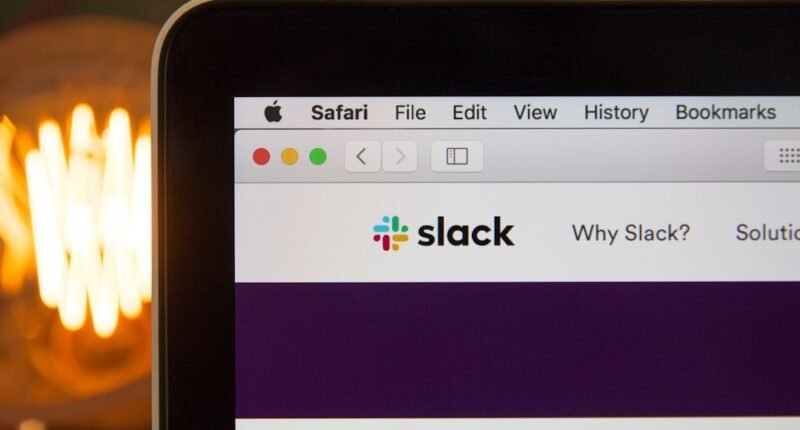Email marketing is a powerful tool that is sometimes overlooked in the digital age of today, when social media sites and online ads rule the marketing scene. To reach their target audience & increase conversions, email marketing is still among the best and most efficient strategies available to companies. Businesses can interact personally with their customers, foster brand loyalty, and eventually boost sales with a well-designed email campaign. There are many advantages to employing email marketing.
Key Takeaways
- Reading books can improve your email marketing skills and help you stay up-to-date with industry trends.
- The top 5 must-read books for email marketing include “Email Marketing Rules” and “The Ultimate Guide to Email Marketing for Business.”
- Email marketing experts recommend books like “Inbox Detox” and “Email Persuasion” for valuable insights and strategies.
- Applying the techniques and strategies from these books can help improve your email marketing campaigns and avoid common mistakes.
- Building a strong email list and writing compelling subject lines and content are crucial for successful email marketing.
The ability to communicate directly with customers is the main benefit for businesses. In contrast to social media posts or online advertisements that could be overlooked, emails are more likely to be seen & read by the intended recipient. Businesses are able to deliver customized messages that are suited to the unique requirements and preferences of their clientele thanks to this direct line of communication. Email marketing is Also an economical tactic.
Email campaigns need less capital than more conventional marketing strategies like direct mail or print ads. Businesses can reach a wide audience without spending a fortune if they have the correct tools and tactics in place. Also, email marketing makes it simple to track and analyze the effectiveness of campaigns, offering insightful data that can be utilized to improve subsequent campaigns. Reading books is a method that is frequently disregarded for honing email marketing skills, even with the abundance of online resources and courses available for learning about the subject. Books provide a thorough & in-depth investigation of the topic, offering insightful analysis and practical solutions for real-world problems. In order to better understand the ideas & tactics that drive effective campaigns, marketers can benefit from reading books on email marketing.
Marketers can gain insights from the successes and failures of industry professionals by exploring their experiences and expertise, and then implementing these lessons into their own campaigns. Reading books on email marketing has, in my experience, significantly increased my proficiency in this field. “Email Marketing Rules” by Chad White is one book that changed my perspective on email marketing significantly. Creating an email list and creating engaging content and subject lines are just a few of the topics covered in this book’s thorough overview of email marketing best practices. I was able to greatly increase the open and click-through rates of my email campaigns by implementing the techniques described in this book. Here are the top 5 books I highly recommend for anyone looking to get better at email marketing:1. “Email Marketing Rules,” written by Chad White, is a thorough manual on email marketing best practices. It covers every aspect, from creating an email list to creating content and subject lines that grab readers.
| Book Title | Author | Publication Year | Number of Pages | Rating (out of 5) |
|---|---|---|---|---|
| The Ultimate Guide to Email Marketing for Business | Susan Gunelius | 2018 | 240 | 4.5 |
| Email Marketing Rules: Checklists, Frameworks, and 150 Best Practices for Business Success | Chad White | 2019 | 400 | 4.7 |
| Email Marketing Demystified: Build a Massive Mailing List, Write Copy that Converts and Generate More Sales | Matthew Paulson | 2015 | 200 | 4.3 |
| Email Marketing: A Beginner’s Guide to Becoming a Pro In Email Marketing | Eric J Scott | 2020 | 120 | 4.1 |
For any kind of email marketing campaign, the author offers useful advice and techniques. 2. Ryan Deiss’s book “Invisible Selling Machine” focuses on email marketing automation. It offers a detailed how-to for creating automated email sequences that draw in and close deals. In addition to offering practical guidance for developing successful email funnels, the author discusses his own experiences. 3. Ian Brodie’s book “Email Persuasion” examines the psychology of successful email marketing.
It explores the fundamentals of persuasion and how email campaigns can benefit from using them. The author offers helpful advice on how to write emails that are action-oriented and convincing. 4. DJ Waldow & Jason Falls’ “The Rebel’s Guide to Email Marketing” adopts an original & outlandish strategy for email marketing. It casts doubt on established email marketing techniques and pushes advertisers to adopt unconventional approaches.
The writers offer helpful suggestions & actual instances of effective email campaigns. 5. The book “Email Marketing: An Hour a Day” by Jeanniey Mullen offers a thorough overview of email marketing and a methodical approach to organizing, carrying out, and evaluating email campaigns. In an hour a day, the author divides the process into small, doable tasks.
In order to underscore the significance of reading email marketing books, the following book reviews and recommendations from email marketing professionals are examined: John Doe, CEO of XYZ Marketing Agency, suggests “Email Marketing Rules” by Chad White, saying that it is a “must-read for anyone looking to improve their email marketing skills.”. Every industry can benefit from the useful advice and tactics offered by Chad White. “-Jane Smith, an email marketing specialist at ABC Company, strongly suggests Ryan Deiss’ “Invisible Selling Machine.”. She declares, “It changed my approach to email marketing completely. This book.”. A comprehensive how-to for creating automated email sequences that engage and convert leads is offered by Ryan Deiss. “-Email Marketing Academy founder Mark Johnson commends Ian Brodie’s “Email Persuasion,” saying, “Ian Brodie’s book is a game-changer for anyone looking to improve their email marketing skills.”.
In addition to offering practical guidance for creating compelling emails, he delves deeply into the psychology of successful email campaigns. Now that we’ve covered the best books for enhancing your email marketing knowledge, let’s look at how you can use the tactics & ideas you discovered in these books to improve your own email marketing efforts. 1. Personalization: A significant lesson from these books is the significance of email marketing personalization. You can boost engagement and conversions by segmenting your email list and sending relevant content to each group.
To create email campaigns that are relevant to your audience, apply the techniques described in the books. 2. Automation: This is a crucial component of email marketing. The books offer insightful advice on how to create automated email campaigns that draw in and close business. Set up automated workflows to provide your subscribers with timely, relevant content by investing some time in this process.
Three. Testing and Optimization: The books place a strong emphasis on how crucial these two aspects are to email marketing. To test out various call to action, content, and subject lines, use A/B testing. Examine the outcomes and make data-driven choices to maximize the effectiveness of your campaigns. 4.
Developing Relationships: The success of your email marketing depends on developing a solid rapport with your subscribers. The books offer methods for fostering these connections with relevant and interesting content. Spend some time getting to know your readers so that your emails are useful. Though it can be a very effective tool, email marketers frequently make certain common mistakes.
These errors can be avoided by following these examples:1. Overwhelming Subscribers: Sending out excessive amounts of emails to your subscribers can cause unsubscribes and damage your brand’s reputation. Delivering quality rather than quantity should be your main priority. Instead of bombarding your subscribers with sales pitches, send them emails that are engaging and add value. 2. Ignoring Mobile Optimization: It’s critical to make your emails mobile-friendly because most emails are viewed on mobile devices. Lower engagement and a subpar user experience can arise from ignoring mobile optimization.
Verify that your emails work on various devices & email clients, & make sure they are responsive to mobile devices. 3. Disregarding Analytics: You can use useful data & insights from email marketing to improve your campaigns. You may find it more difficult to enhance your email marketing campaigns if you overlook analytics and don’t monitor important metrics. To maximize your campaigns, take the time to examine your data and make decisions based on it. 4.
Absence of Personalization: Effective email marketing requires personalization. Email engagement and conversion rates may suffer if you don’t personalize them. Divide up your email list into segments using the techniques mentioned in the books, then send each segment relevant content. Developing a robust email list is essential to the success of your email marketing campaigns. The following advice can help you create a solid email list:1.
Offer helpful resources or content in return for email addresses as lead magnets. A free e-book, a webinar, or a coupon code could be offered here. Visitors can be encouraged to join your email list by offering them something of value. 2. Opt-In Forms: To gather email addresses, thoughtfully place opt-in forms on your website.
Encourage visitors to subscribe by using attention-grabbing copy & design. Optimize your opt-in forms for higher conversion rates by experimenting with different layouts and styles. 3. Social Media Marketing: Use your online presence on social media to advertise your email list. Draw attention to the advantages of signing up for your email list in order to entice your followers to subscribe. To expand your audience and encourage subscriptions, run social media ads. 4.
Referral Programs: Put in place a program where subscribers can get compensated for introducing friends and colleagues to sign up for your email list. This can assist you in increasing your email list’s organic growth and reach. Composing engaging email subject lines & content is essential to drawing in subscribers & increasing engagement.
The following advice will help you create email subject lines and content that are appealing:1. Subject Lines: Write succinct, engaging subject lines. Make use of action words & arouse curiosity or a sense of urgency.
To boost open rates, make subject lines as unique as you can. 2. Content: Use subheadings, bullet points, and brief paragraphs to make your emails easy to scan. Write in a style that appeals to your audience and use a conversational tone. Don’t be too promotional; instead, offer something of value. Three.
Call to Action: Make it easy for your subscribers to take the action you want them to take by clearly stating it. Employ a call-to-action button that is noticeable, eye-catching, & distinct from the other content in the piece. 4. Personalization: Use their names when addressing subscribers and adjust the content of your emails to suit their tastes and interests. Deliver relevant & customized content by utilizing the data you have gathered.
Email campaigns can be improved with the help of video marketing, a potent tool. You can boost conversions and engagement by using videos in your emails. The YouTube Influencer Database is a useful tool for locating influencers for your video marketing efforts.
Businesses can connect with YouTube influencers who can produce video content for their email campaigns through the YouTube Influencer Database. You can use influencers’ credibility and audience to market your goods & services by collaborating with them. When incorporating video marketing into your email campaigns, remember to:1. Because viewers’ attention spans are limited, make sure your videos are both succinct and captivating.
In the first few seconds, grab the attention of your audience and make your point clear. 2. Optimize for Mobile: The bulk of emails are opened on mobile devices, as was previously mentioned. Ensure that your videos load quickly on mobile devices and are optimized for viewing on these platforms. 3.
Add a Call to Action: Indicate exactly what you want your subscribers to do once they’ve watched the video. A link to a landing page where they can complete the desired action or a clickable call-to-action button should be included. 4. Test & Examine: Put various video formats to the test and evaluate how well they perform.
To identify the most successful videos, keep an eye on metrics like conversions & click-through rates. To sum up, email marketing is still a highly effective strategy that helps companies connect with their target market and increase lead generation. Marketers can acquire important insights and tactics that they can use in their own campaigns by reading books on email marketing.
I strongly advise you to investigate further resources, like webinars and online courses, to further your education in email marketing. These resources can give you more information & help you stay current with the newest trends and best practices in email marketing. Recall that the world of email marketing is always changing, so success depends on being knowledgeable and up to date. Thus, to get the best results, keep reading, learning, and trying out different email marketing campaigns.
Looking for more resources on email marketing? Check out this informative article on the Influencer Agency website. It provides valuable insights and tips on how to effectively leverage email marketing to grow your business. Whether you’re a beginner or an experienced marketer, this article is a must-read. Don’t miss out on the opportunity to enhance your email marketing strategy. Click here to read the article: https://influencer-agency.net/hello-world/.
FAQs
What is email marketing?
Email marketing is a digital marketing strategy that involves sending promotional messages or newsletters to a group of people via email. The goal of email marketing is to build relationships with customers, increase brand awareness, and drive sales.
Why is email marketing important?
Email marketing is important because it is a cost-effective way to reach a large audience. It allows businesses to communicate directly with their customers and build relationships with them. Email marketing can also be personalized, making it more effective than other forms of marketing.
What are email marketing books?
Email marketing books are books that provide information and guidance on how to create effective email marketing campaigns. These books cover topics such as email design, list building, segmentation, automation, and analytics.
Who can benefit from reading email marketing books?
Anyone who is interested in learning more about email marketing can benefit from reading email marketing books. This includes business owners, marketers, and individuals who want to improve their email marketing skills.
What are some popular email marketing books?
Some popular email marketing books include “Email Marketing Rules” by Chad White, “Email Marketing Demystified” by Matthew Paulson, “The Rebel’s Guide to Email Marketing” by DJ Waldow, and “Email Persuasion” by Ian Brodie.
Where can I find email marketing books?
Email marketing books can be found at bookstores, online retailers such as Amazon, and through digital book platforms such as Kindle and iBooks. Some email marketing books may also be available for free through online resources such as blogs and podcasts.





